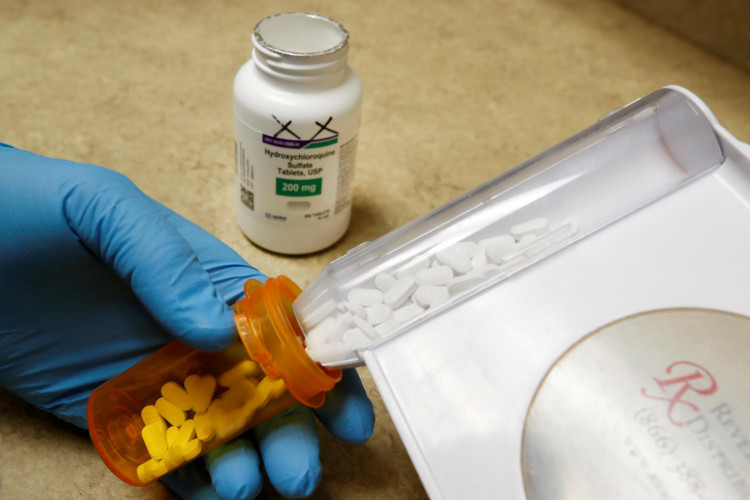The World Health Organization said on Saturday that its trials of the malaria drug hydroxychloroquine and the combination of HIV medication lopinavir-ritonavir in hospitalized patients with COVID-19 were discontinued after they failed to minimize the number of fatalities.
The setback came when over 200,000 new cases of the disease were also identified by the WHO for the first time in a single day around the world. Of the total of 212,326 new cases reported on Friday, the United States accounted for 53,213, the WHO disclosed.
The recommendations to stop the trials came from the International Steering Committee of Solidarity Trial formed by the WHO to find an appropriate treatment for hospitalized patients suffering from COVID-19.
The novel coronavirus, which broke out about six months ago, infected more than 11 million people and claimed the lives of more than 553, 639 globally.
Hydroxychloroquine's effectiveness as a treatment for the disease had caused controversy particularly after United States President Donald Trump touted the drug as a miracle cure for the disease. The president revealed last May that he was taking hydroxychloroquine to fight the virus, a move that scientists said was very dangerous.
WHO is also suspending the HIV antiretroviral drug trials, lopinavir/ritonavir, because these have been found to fail in containing COVID-19 mortality.
In a statement, WHO said that results from interim tests show that hydroxychloroquine and lopinavir/ritonavir produce little or no reduction in the mortality of hospitalized COVID-19 patients when compared to standard of care, Theresa Braine of the New York Daily News wrote.
The US Food and Drug Administration withdrew its authorization last month for administering the vaccine on an emergency basis, CNN reported. It did the same for tests around the globe, the report added, including some sponsored by WHO and the National Institutes of Health.
WHO pointed out that while there was no strong proof of heightened levels of mortality for hospitalized COVID-19 patients administered with the vaccine, there were some associated safety indications in the clinical findings of an associated test.
The organization disclosed the decision will not hamper possible trials on coronavirus patients who are not confined to a hospital, or on individuals receiving the vaccines before potential exposure to the disease or moments afterward.
Meanwhile, another unit of the WHO-led tests is evaluating the potential effect of Gilead Sciences' antiviral vaccine remdesivir on COVID-19. On Friday, the European Commission gave remdesivir conditional authority for use after tests showed it can reduce hospital recovery times.






